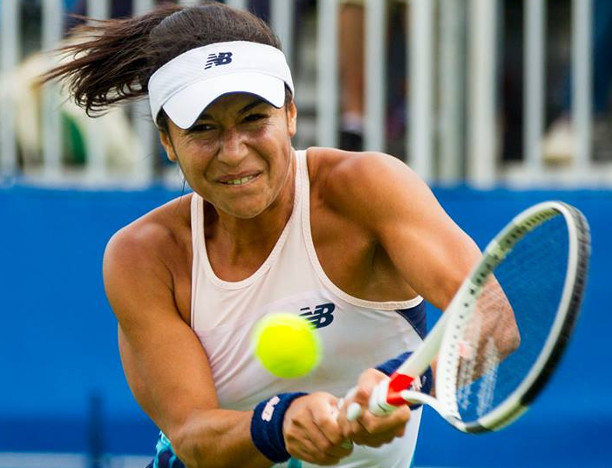
Opponents can occasionally pull acts of gamesmanship on court, but one of the toughest mental tests Heather Watson ever faced in a tournament came via a text on her phone.
A teenage Watson received a death threat in a text prior to playing in New Zealand, she recalls in an interview with You Magazine.
Watch: Top 20 Roland Garros Takeaways
“I was 17 and at a game in New Zealand the first time it happened,” Watson told writer Louise Gannon. “I looked at my phone and there was a message saying: ‘I’m going to find you and kill you.’ My heart just stopped. It was so scary because there were crowds out there and I thought someone could just get me at any time.
“I was in the dressing room crying and luckily my friend Sloane Stephens was there. She said: ‘Girl, I get those all the time. Just ignore it and keep playing.’ It was like a switch flipping in my head: don’t let anyone put you off your game. I’ve had that attitude ever since.”
The British No. 2, who doesn’t drink coffee or tea and tries to get between 10 and 12 hours of sleep per night for recovery, said the pro circuit demands complete sacrifice from players.
“Tennis isn’t just a career, it’s a vocation,” Watson said. “You have to be prepared to sacrifice everything.”
Perhaps that's one reason why the tour can sometimes feel like a cold place for players.
"Women’s tennis is definitely not friendly—it’s basically, 'You’re my opposition,' so often there’s not even eye contact," Watson said.
The 2016 Wimbledon mixed doubles champion with partner Henri Kontinen, the 113th-ranked Watson said the life of a tennis pro isn’t quite as glamorous as people may think.
"I'm definitely no princess—one of the first things they taught us at the sports academy was how to do your own laundry, how to cook, what to eat and how to do your own packing,” Watson said. "And I'm far from super rich. When you win you can earn a lot of money, but you also spend a lot of money—every match I play, I have to pay for my trainers, my coach and my physios to travel with me. Tennis is an expensive sport and I would never have got as far as I have without my parents supporting me—it’s not a sport you can even get into if you don’t have financial help.
“My biggest achievement so far is buying my own apartment [a riverside flat in West London she bought in 2015], because that is my security. I’m a big saver. I rarely buy anything expensive—bar the occasional pair of shoes. I’ve learned to be very careful with money because you never know what is going to happen.”
Photo credit: Aegon Surbiton Trophy